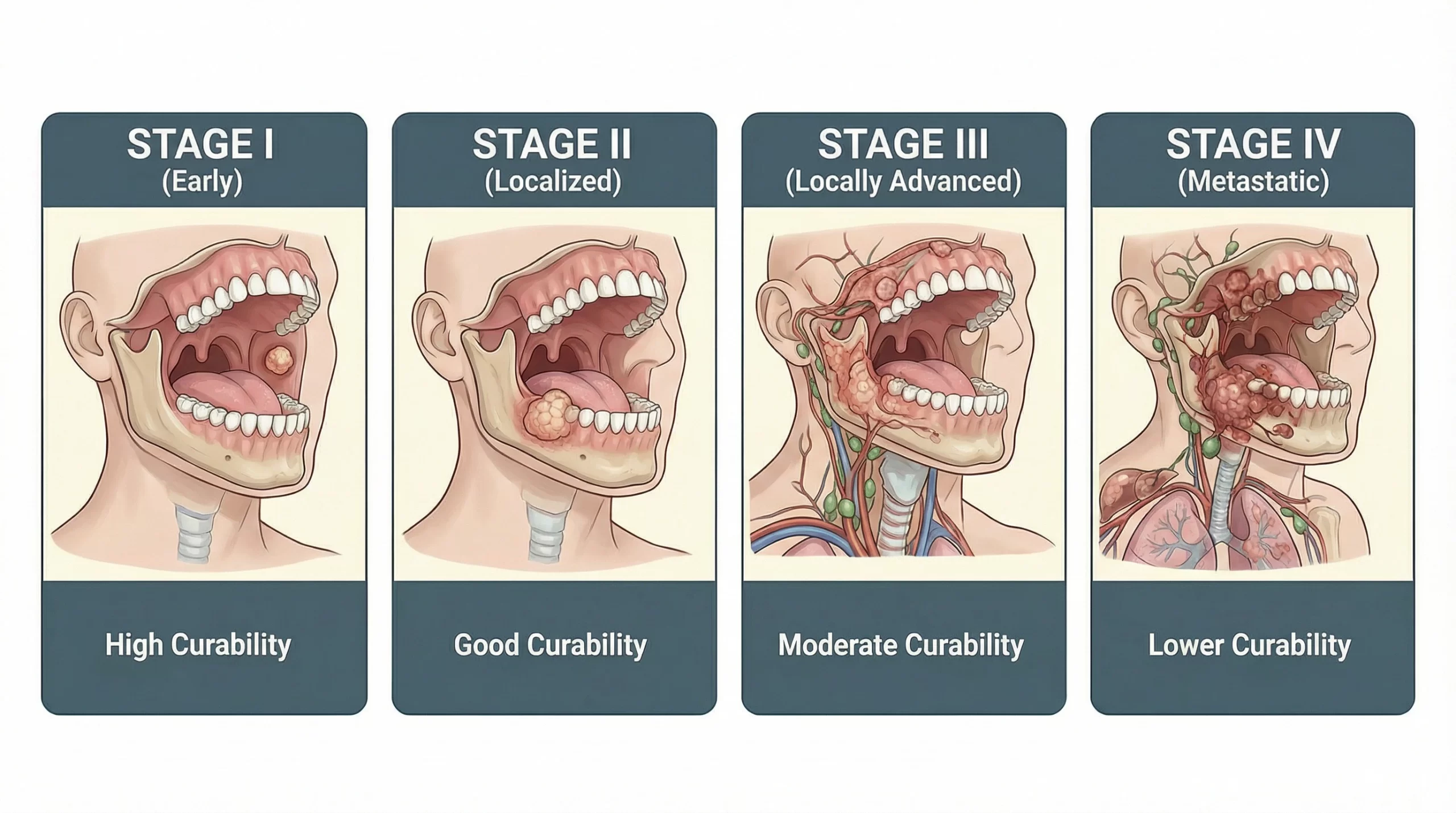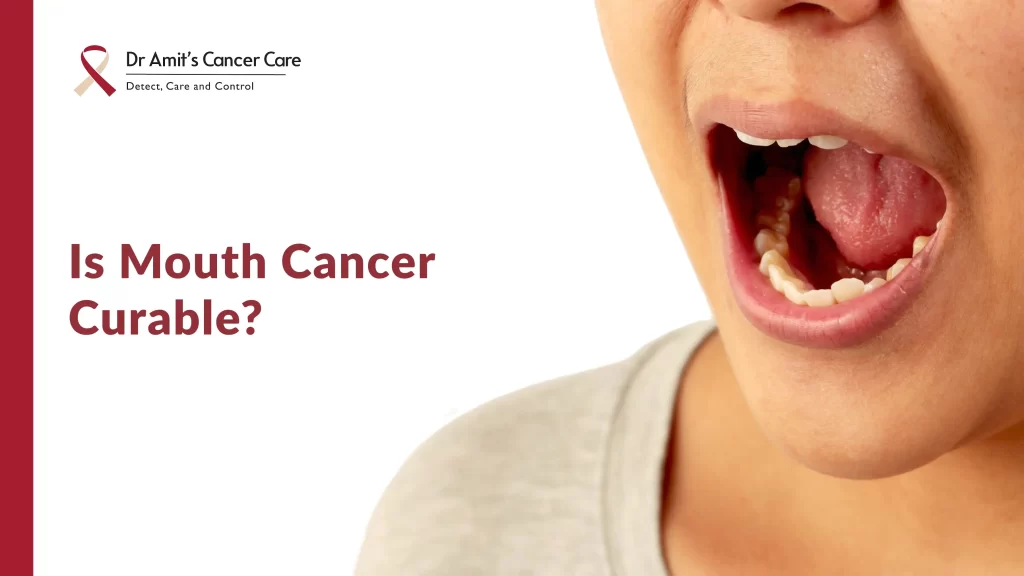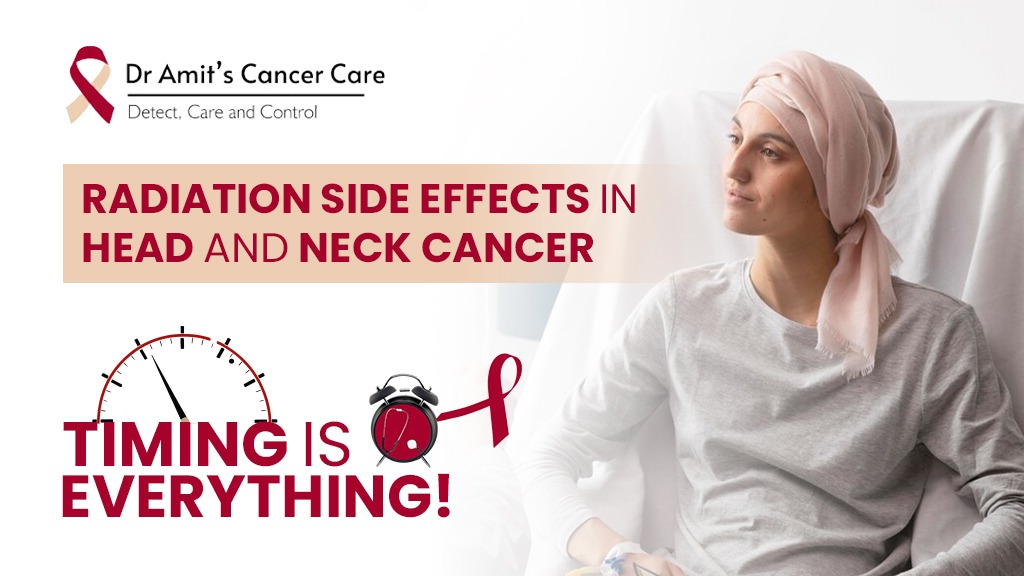When people begin searching for information about oral cancer, one question naturally comes to mind: can mouth cancer be cured? It is a question driven by the need for clarity, direction, and reassurance, and it deserves an answer that is both honest and encouraging.
At Dr Amit’s Cancer Care, we believe that understanding your options is an essential part of moving forward. The positive reality is that mouth cancer is often curable, especially when it is identified early and treated with the right expertise. Over the years, advances in surgical oncology, imaging, and supportive care have transformed outcomes, allowing many patients to achieve long-term, cancer-free lives.
A successful recovery is shaped by more than one step alone. Early detection, precise surgery, appropriate additional therapy when required, and structured rehabilitation all work together to support healing. This guide explains how curable mouth cancer can be, what factors influence prognosis, and how modern cancer care in India is helping patients regain health, function, and confidence in life after treatment.
Can Mouth Cancer Be Cured?
Yes, mouth cancer can be cured, particularly in its early stages.
In medical oncology, cure is commonly assessed using the five-year survival rate. This refers to the percentage of patients who remain alive five years after diagnosis and treatment, a benchmark widely used in cancer care.
For Oral Squamous Cell Carcinoma (OSCC), the most common form of mouth cancer affecting the oral lining, outcomes are strongly linked to stage at diagnosis:
How Curable Is Mouth Cancer by Stage?
Whether mouth cancer is curable or not depends largely on the TNM staging system, which evaluates tumour size, lymph node involvement, and distant metastasis. Understanding how curable mouth cancer is often requires looking at the stage of the disease.

Stage 1 mouth cancer:
This is the earliest stage, where the tumour is small and confined to one area. Stage 1 mouth cancer is highly curable, and many patients achieve a complete cure with timely treatment.
Stage 2 mouth cancer:
At this stage, the tumour is slightly larger but still localised. Stage 2 mouth cancer is curable in a significant number of patients with proper surgical treatment and follow-up care.
Stage 3 mouth cancer:
Cancer may involve nearby lymph nodes. While more complex, Stage 3 mouth cancer is still treatable, and many patients achieve long-term disease control or a cure with combined treatment.
Stage 4 mouth cancer:
This is an advanced stage. While stage 4 mouth cancer may not always be fully curable, it is often treatable. Modern treatment can extend survival, reduce symptoms, and improve quality of life.
In summary, how curable mouth cancer is depends primarily on how early it is detected. Early-stage mouth cancer has the highest cure rates, while advanced stages require more intensive treatment but are still actively managed. Under the care of Dr Amit Chakraborty, even advanced cases are approached with a goal of long-term disease control or cure using radical surgery and modern reconstruction.
Prognosis and Factors That Influence Cure
The prognosis of mouth cancer is influenced by several interlinked factors, especially whether the disease is detected at an early stage:
- Stage at diagnosis, with early-stage cancers having the highest cure rates
- Presence or absence of metastasis, which affects treatment complexity and outcomes
- Tumour location within the oral cavity, influencing surgical approach and recovery
- Patient’s nutritional and general health, which supports healing and treatment tolerance
- Timely completion of recommended treatment, critical for long-term disease control
Early-stage detection remains the single most important factor in determining outcomes. A small, localised tumour identified at an early stage offers a dramatically higher chance that mouth cancer is completely curable.
How Treatable Is Mouth Cancer?
Mouth cancer is considered one of the more treatable head and neck cancers. The oral cavity is easily accessible for examination, biopsy, and surgery, allowing earlier diagnosis and precise intervention.
At leading cancer centres in Mumbai, treatment planning is done through a multidisciplinary tumour board. This team includes surgical oncologists, radiation oncologists, medical oncologists, radiologists, and pathologists. Each case is collectively reviewed to create a personalised, evidence-based treatment plan.
This collaborative approach significantly improves outcomes and reduces the risk of recurrence.
Surgical Excellence: The Cornerstone of Cure
For most patients, surgery remains the gold standard treatment for curing mouth cancer. It allows complete removal of the tumour while minimising the risk of recurrence. When performed with precision and supported by appropriate follow-up care, surgery offers the highest chance of long-term, cancer-free survival.
Key surgical principles include:
- Wide local excision:
Complete removal of the tumour along with a margin of healthy tissue to ensure no cancer cells remain. - Neck dissection:
Removal of lymph nodes in the neck when there is a risk or evidence of spread. - Mandibular reconstruction:
When the jawbone is involved, advanced microvascular techniques are used to reconstruct the mandible using bone and tissue from other parts of the body. This restores facial structure, speech, and chewing function.
These techniques allow patients not only to survive cancer but also to return to daily life with confidence.
Is Mouth Cancer Curable Without Surgery?
Patients frequently ask if mouth cancer is curable without surgery.
In select situations, such as very small tumours or patients who are unfit for anaesthesia, radiation therapy or brachytherapy may be used as primary treatment. However, for the majority of cases, non-surgical treatments alone are less reliable for achieving a complete cure.
Instead, radiation therapy or chemotherapy is most commonly used as adjuvant therapy, meaning additional treatment given after surgery. Adjuvant therapy helps eliminate microscopic cancer cells and reduces the risk of recurrence.
Is Mouth Cancer Curable in India?
Yes. Mouth cancer is curable in India, and outcomes at specialised centres in Mumbai match international standards.
India offers:
- Highly trained oncosurgeons
- Advanced imaging and surgical technologies
- Modern radiation and systemic therapies
- High-quality care at comparatively accessible costs
Mumbai, in particular, is a major hub for complex head and neck cancer surgery, with patients travelling from across India and abroad for treatment.
Recovery and Life After Mouth Cancer
Becoming cancer-free is not the end of the journey. Recovery focuses on restoring function and preventing recurrence.
Post-cancer treatment care often includes:
- Speech and swallow therapy: Helps restore safe swallowing and clear speech after surgery or radiation affecting oral and throat muscles.
- Nutritional rehabilitation: Supports healing, strength, and immunity when eating is difficult during or after treatment.
- Dental and oral care: Prevents tooth damage, infections, and jaw complications caused by cancer treatment.
- Structured long-term follow-up: Enables early detection of recurrence and management of late treatment-related effects.
- Lifestyle modification and active participation: Reduces recurrence risk and improves long-term survival by avoiding tobacco and alcohol.
When patients actively participate in rehabilitation and avoid risk factors such as tobacco and alcohol, long-term outcomes improve significantly.
Conclusion: Is Mouth Cancer Curable or Not?
So, can mouth cancer be cured? The evidence is clear. When detected early and treated by experienced specialists, a cure is not only possible, it is often the expected outcome.
Mouth cancer is serious, but it is also highly treatable. Early diagnosis, expert surgery, appropriate adjuvant therapy, and structured follow-up together make the difference between uncertainty and recovery. If you or a loved one notices a persistent mouth ulcer, neck lump, or difficulty swallowing, timely evaluation is essential.
Guidance from an experienced oncosurgeon such as Dr Amit Chakraborty can help ensure accurate diagnosis and a clear, well-planned path to treatment. Early action truly saves lives.






